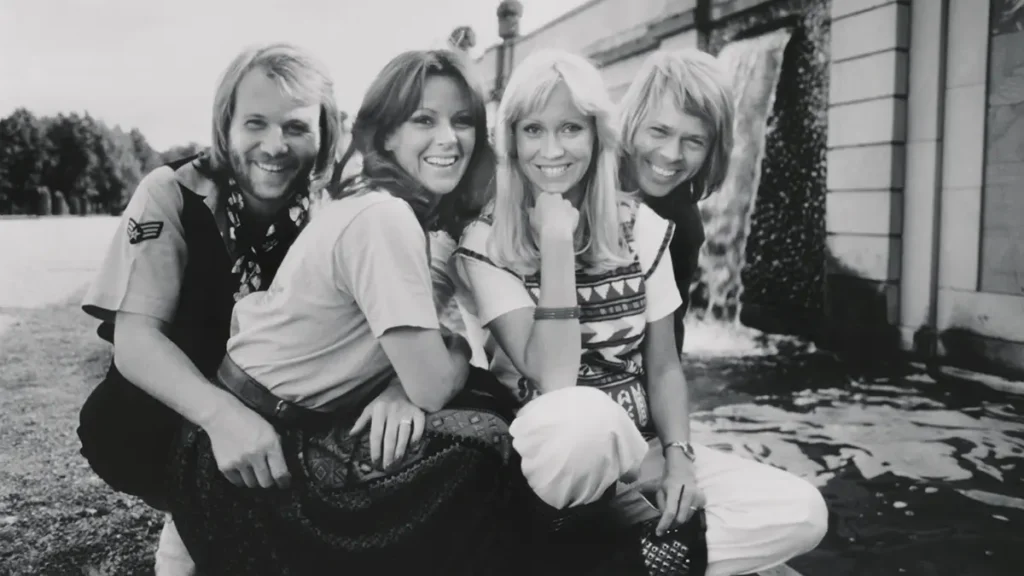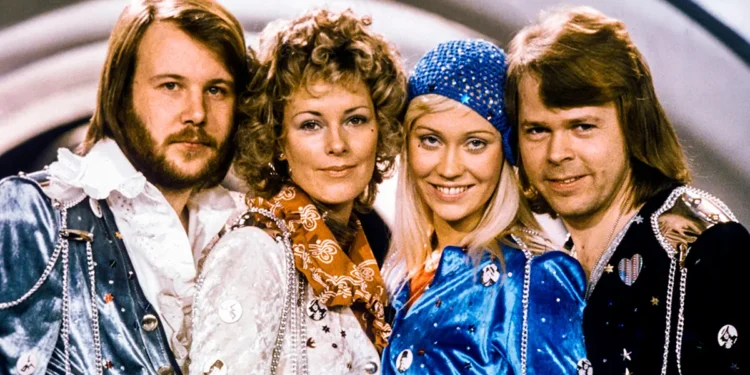Explore ABBA’s journey from a modest quartet cabaret act to global icons, spotlighting their transformative Eurovision Song Contest experience from 50 years ago.
Celebrating a Milestone: 50 Years Since ABBA’s Eurovision Victory
April 6th marks the golden anniversary of ABBA’s landmark victory at the Eurovision Song Contest in 1974. This momentous occasion not only propelled the Swedish group to international stardom but also reshaped pop music history.
Initially known as ‘Festfolk,’ a quartet cabaret act, ABBA’s journey to stardom was anything but ordinary. Under the guidance of their manager Stig Anderson, they transformed into a musical sensation.
Anderson, recognising their potential, renamed them ABBA – an acronym of the first names of ABBA Members Agnetha, Björn, Benny and Anni-Frid. This marked a significant pivot in their career, aligning their identity with the impending Eurovision success.
The 1974 Eurovision Song Contest: A Defining Night
The 1974 Eurovision Song Contest was a key event not only for music group ABBA but also for the entire music industry. Held at the Brighton Dome, an iconic venue known for its blend of history and modernity, the contest was a dazzling display of Europe’s finest musical talents.
The Dome, with its rich architectural heritage, provided the perfect backdrop for what would become a historic night in pop culture.
On the night itself, ABBA faced formidable rivals, showcasing Europe’s diverse musical talent. Italy’s Gigliola Cinquetti presented Sì, a melodious entry blending traditional Italian style with contemporary flair.
Representing the United Kingdom – and prior to the musical film which made her even more famous, Grease – Olivia Newton-John performed Long Live Love, a song embodying the classic British pop sound of the era.
Waterloo: A Performance That Changed Everything
These artists, with their distinctive musical offerings, provided a significant challenge to ABBA, creating an atmosphere of intense competition and artistic excellence. However, their performance of Waterloo was unparalleled.
The song, with its catchy tune, memorable lyrics and the ABBA charismatic presence, captivated the audience and judges alike. It was a performance that combined contemporary pop sensibilities with an infectious energy, setting a new benchmark for Eurovision entries.

ABBA’s Lasting Impact: A Global Pop Phenomenon
The victory was more than just a win; it was a defining moment for ABBA. Waterloo’s immediate success across Europe was a testament to its universal appeal. The group’s fusion of melodic pop with a distinctively European flair resonated with a global audience.
Post-Eurovision, their trajectory was meteoric, churning out hit after hit, creating a rich catalogue of music that has stood the test of time. From Dancing Queen to Mamma Mia, their songs became anthems for generations.
Legacy of the 1970s: ABBA’s Role in a Vibrant Musical Era
A unique blend of harmonies, catchy melodies and poignant lyrics, coupled with a distinctive visual style, set them apart from their contemporaries. ABBA’s influence extended beyond music; they became cultural icons, influencing fashion, film and even theatre.
Prior to their arrival on the scene, the 1970s cultural and musical scene was a vibrant era of change and innovation, with the rise of diverse genres like disco, rock, punk and funk, reflecting global shifts in social and political landscapes. Music became a powerful medium for expression, with artists exploring new sounds and challenging conventional norms.
In this eclectic atmosphere, ABBA’s emergence offered a distinct contrast to the heavier rock and experimental sounds prevalent at the time and their style – often uplifting and accessible – resonated with a wide audience, making them stand out in an era of musical complexity and diversity.
It was a success which demonstrated the global appeal of well-crafted pop music, paving the way for future pop acts to achieve international acclaim. That influence extended beyond music, impacting fashion and visual presentation in the industry, embodying the vibrant and transformative spirit of the 1970s.
ABBA Today: Celebrating 50 Years of Timeless Music
As music fans commemorate the 50th anniversary of this landmark event, it’s clear that ABBA’s legacy continues to resonate. Their story, from ‘Festfolk’ to global icons, is a testament to the transformative power of songs – a legacy immortalised in their timeless canon, and one that continues to inspire and entertain, proving that true art knows no boundaries.








